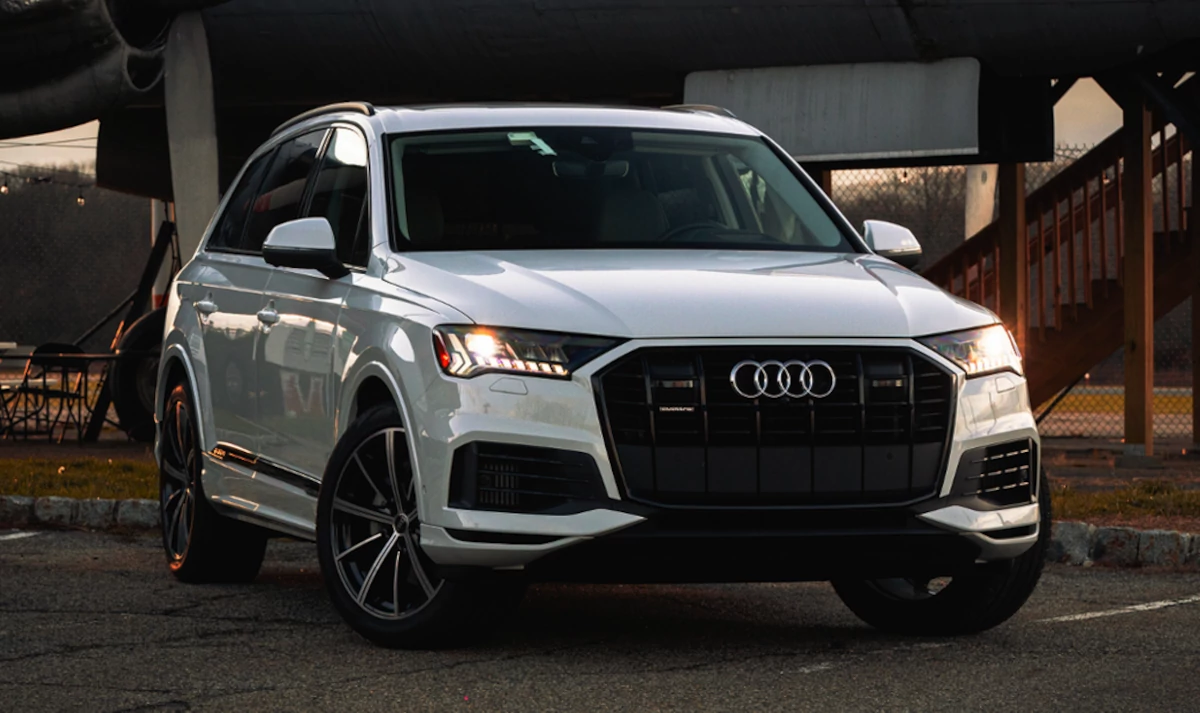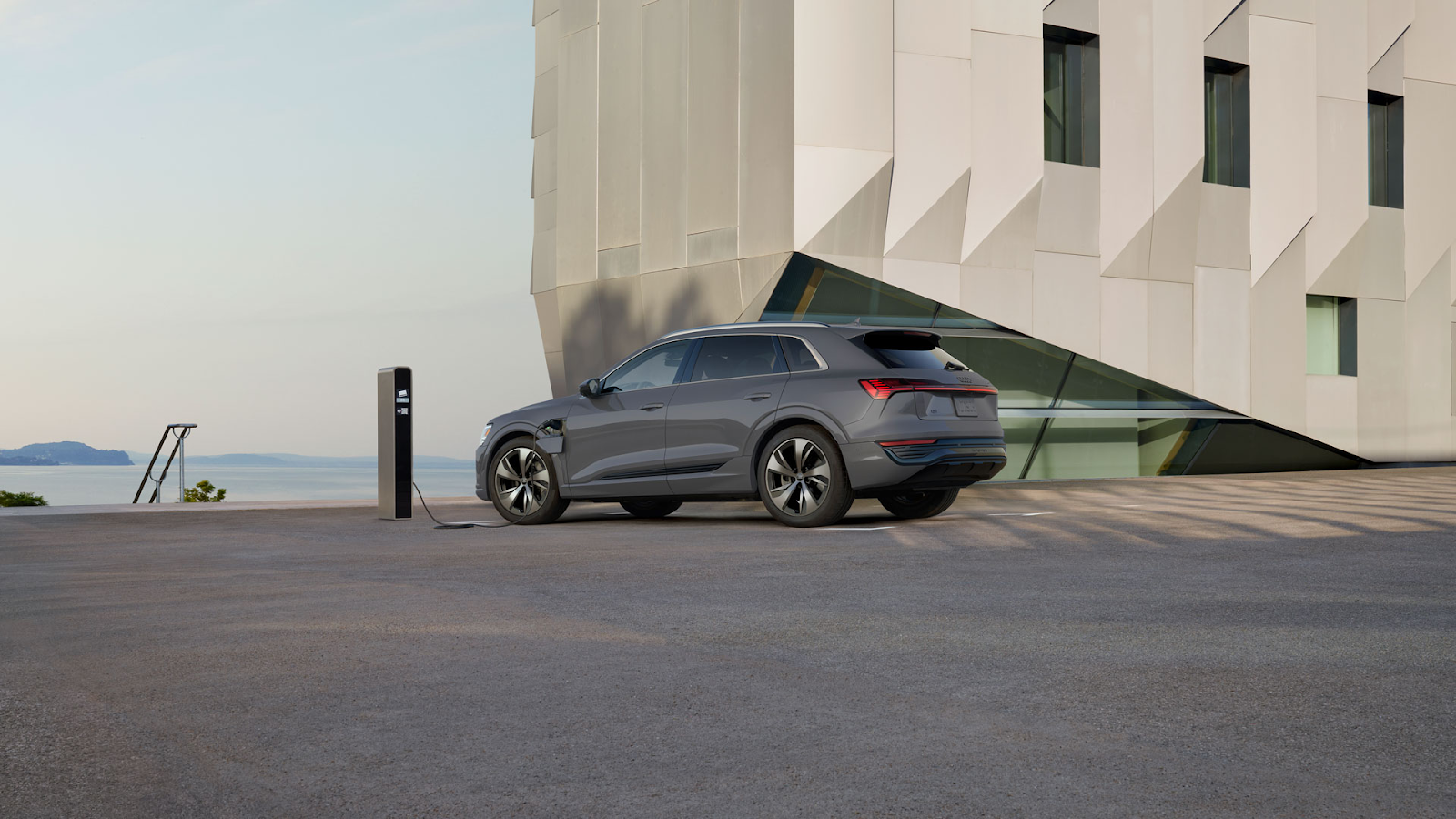
Audi’s Hybrid Revolution: A Glimpse into 2025
The automotive landscape is undergoing a rapid transformation, driven by a relentless push towards electrification and sustainable mobility. Audi, a brand synonymous with luxury and performance, stands at the forefront of this revolution, poised to redefine the hybrid experience in 2025.
While the German automaker has already established a strong presence in the EV market with models like the e-tron and e-tron GT, 2025 promises a further evolution of its hybrid strategy, offering a compelling blend of performance, efficiency, and technological innovation. This article delves into the anticipated offerings from Audi, exploring the key features, potential models, and the broader impact of its hybrid vision on the automotive industry.
The Hybrid Advantage: A Balancing Act
Hybrid technology, in its various forms, offers a unique advantage by bridging the gap between traditional gasoline engines and pure electric vehicles. It combines the power and range of a combustion engine with the efficiency and emission-free driving of an electric motor, resulting in a compelling proposition for consumers seeking both performance and sustainability.
Audi’s approach to hybridization is characterized by its commitment to delivering a seamless and intuitive driving experience. The company’s hybrid powertrains are designed to be responsive and refined, offering a smooth transition between electric and combustion modes. This approach ensures that drivers can enjoy the benefits of electrification without sacrificing the driving dynamics that Audi is renowned for.
2025: A Year of Hybrid Advancements
Audi’s 2025 hybrid lineup is expected to showcase a range of innovative technologies and model variations, catering to a diverse range of consumer needs. Here’s a closer look at some anticipated highlights:
1. Enhanced Plug-in Hybrid Systems:
- Increased Electric Range: Audi is likely to focus on extending the electric-only range of its plug-in hybrid models. This would allow for greater everyday use on electric power alone, reducing reliance on gasoline and minimizing emissions.
- Improved Battery Technology: Expect advancements in battery technology, leading to faster charging times, increased energy density, and longer lifespan.
- Advanced Regenerative Braking: Audi’s hybrid systems will feature sophisticated regenerative braking systems, maximizing energy recovery during deceleration and extending the electric range.
2. Mild Hybrid Technology Expansion:
- Wider Model Availability: Mild hybrid technology, which uses a small electric motor to assist the combustion engine, will likely be integrated into a broader range of Audi models, including smaller and more fuel-efficient options.
- Enhanced Efficiency: Mild hybrid systems will contribute to improved fuel economy and reduced emissions across the model lineup.
3. Performance Hybrid Powertrains:
- High-Performance Models: Audi’s renowned "S" and "RS" performance models will likely embrace hybrid technology to create even more powerful and efficient variants. Expect these models to feature high-output electric motors that deliver instant torque and boost performance.
- Enhanced Driving Dynamics: The combination of powerful electric motors and refined combustion engines will create a unique driving experience, blending the best of both worlds.
Anticipated Models and Their Features:
1. Audi A4/A5/A6/A7 Hybrids:
- Enhanced Efficiency: These popular models are expected to receive updates to their plug-in hybrid systems, offering extended electric range and improved fuel economy.
- Increased Power: Hybrid versions of the A4, A5, A6, and A7 will likely feature more powerful electric motors, enhancing performance and responsiveness.
- Premium Interior: Audi’s commitment to luxury will be evident in the spacious and refined interiors of these hybrid models, offering a comfortable and technologically advanced driving experience.
2. Audi Q5/Q7/Q8 Hybrids:
- Electric SUVs: The Q5, Q7, and Q8 are expected to be available with more powerful plug-in hybrid systems, offering extended electric range and a more eco-friendly driving experience.
- Advanced All-Wheel Drive: Audi’s quattro all-wheel drive system will be integrated with the hybrid powertrain, providing exceptional traction and stability in various driving conditions.
- Spacious and Versatile: These hybrid SUVs will offer a spacious and versatile interior, ideal for families and those seeking a comfortable and practical vehicle.
3. Audi e-tron Sportback Hybrid:
- Performance Hybrid: Audi’s e-tron Sportback, already a stylish and capable electric SUV, could be offered with a high-performance hybrid powertrain, combining the electric motor with a powerful gasoline engine.
- Uncompromising Performance: This hybrid version would offer a blend of electric efficiency and exhilarating performance, making it a compelling choice for those seeking a sporty and sustainable driving experience.
4. Audi R8 Hybrid:
- The Future of Supercars: The iconic Audi R8, known for its blistering performance, could receive a hybrid powertrain, combining a powerful electric motor with a high-revving gasoline engine.
- Unmatched Performance: This hybrid R8 would offer breathtaking acceleration, exceptional handling, and the efficiency benefits of electrification, setting a new benchmark for supercar performance.
The Wider Impact of Audi’s Hybrid Vision
Beyond the specific models and technologies, Audi’s hybrid strategy has broader implications for the automotive industry. Here are some key points:
- Accelerating Electrification: Audi’s commitment to hybrid and electric vehicles is a strong signal to the industry that the future of mobility is electric. This is likely to inspire other automakers to accelerate their own electrification plans.
- Sustainable Performance: Audi’s focus on combining performance with sustainability is setting a new standard for the luxury car market. This approach is likely to attract a growing number of environmentally conscious consumers who are not willing to compromise on driving enjoyment.
- Technological Innovation: Audi’s investments in hybrid technology are driving advancements in battery technology, electric motors, and powertrain integration. These innovations will benefit the entire automotive industry, leading to more efficient and sustainable vehicles.
Challenges and Opportunities
While Audi’s hybrid vision is ambitious and promising, it also faces certain challenges:
- Infrastructure Development: The widespread adoption of hybrid and electric vehicles requires a robust charging infrastructure. Audi, along with other automakers, will need to collaborate with governments and private companies to develop and expand charging networks.
- Battery Cost: Battery technology is still relatively expensive, which can impact the price of hybrid and electric vehicles. Continued research and development are crucial to reduce battery costs and make these technologies more accessible to a wider range of consumers.
- Consumer Acceptance: Some consumers may still have reservations about hybrid and electric vehicles, concerned about range, charging time, or the perceived lack of driving excitement. Audi will need to continue to educate consumers about the benefits of these technologies and demonstrate their practicality and performance.
Conclusion: A Sustainable Future
Audi’s 2025 hybrid lineup promises a compelling blend of luxury, performance, and sustainability. By embracing hybrid technology, the German automaker is not only redefining its own product offerings but also shaping the future of the automotive industry. The company’s commitment to innovation and its focus on delivering a seamless and enjoyable driving experience will likely make its hybrid models a compelling choice for consumers seeking a sustainable and exciting driving experience.
The future of mobility is electric, and Audi, with its unwavering commitment to innovation and performance, is poised to be a key player in this exciting transformation. As the company continues to evolve its hybrid strategy, we can expect to see even more compelling and technologically advanced models in the years to come, paving the way for a sustainable and exhilarating automotive future.









